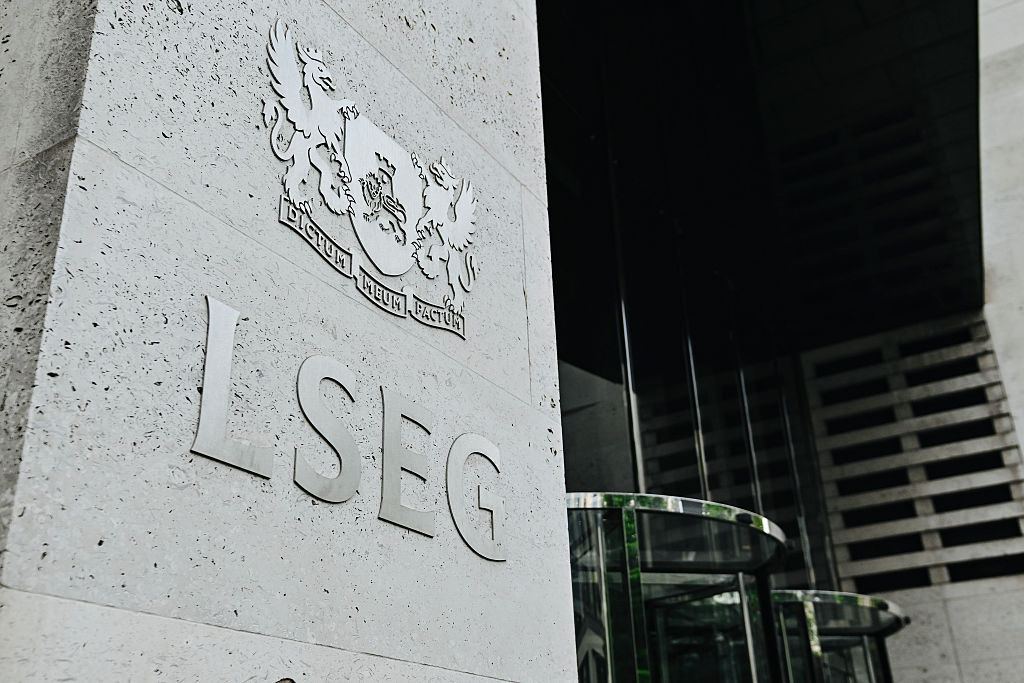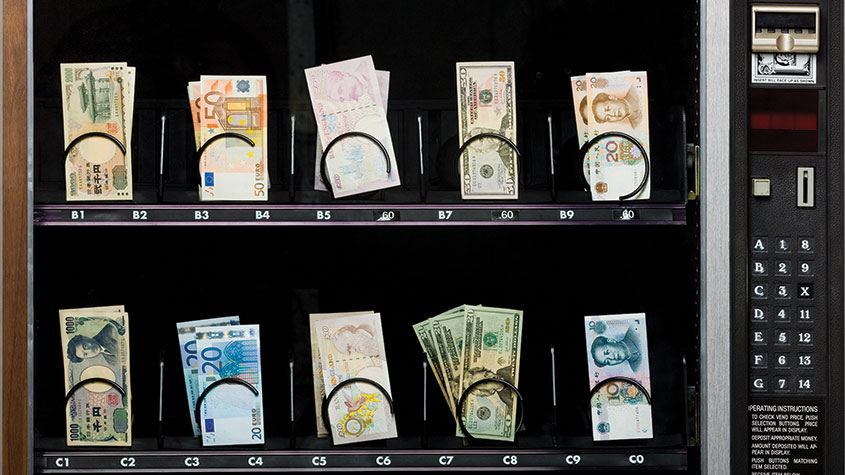Get the latest financial news, insights and expert analysis from our award-winning MoneyWeek team, to help you understand what really matters when it comes to your finances.
You are now subscribed
Your newsletter sign-up was successful
Want to add more newsletters?

Twice daily
MoneyWeek
Get the latest financial news, insights and expert analysis from our award-winning MoneyWeek team, to help you understand what really matters when it comes to your finances.

Four times a week
Look After My Bills
Sign up to our free money-saving newsletter, filled with the latest news and expert advice to help you find the best tips and deals for managing your bills. Start saving today!
"Penny share status is unattractive for many investors." So says Caledonia Mining (AIM: CMCL), which is going to consolidate its shares so that the current price of 8.5p becomes 85p (but holders will only have one share instead of ten).
You would think that the type of investor that Caledonia is attempting to attract with this manoeuvre would have the brains to understand the irrelevance of the nominal share price, which tells you nothing about a company's stock-market valuation. That aside, there is something much more unattractive about Caledonia than its share price, which I will come to in a moment.
First though, let me set out a few facts.
MoneyWeek
Subscribe to MoneyWeek today and get your first six magazine issues absolutely FREE

Sign up to Money Morning
Don't miss the latest investment and personal finances news, market analysis, plus money-saving tips with our free twice-daily newsletter
Don't miss the latest investment and personal finances news, market analysis, plus money-saving tips with our free twice-daily newsletter
Costly ventures into unstable territories
Caledonia has a mine that produced 45,000oz of gold last year. The cost, $500 per oz, compares very favourably with a local average of around $800/oz. Production is rising towards a target of 76,000oz by 2016, the $37m investment cost can be paid for out of cash flow, still leaving sufficient funds for Caledonia to pay a dividend and have a look at a copper project in Zambia.
Despite these rosy prospects, broker Edison Investment reckons that theshares trade at a discount of around 50% to comparable gold miners. So what's the problem?
I have no doubt that if this mine was in Australia or Canada, this 50% discount would not apply. But this mine, called the Blanket Gold Mine, is in Zimbabwe. Dare we venture into this troubled country?
Political risk is a major factor in the mining sector and has become more so in recent years. Governments have responded to the mining boom by selectively changing the rules or by simply helping themselves to mining assets that foreigners thought they owned.
A comprehensive study of country risk has been produced by the UK-based consultancy Maplecroft, and it gives plenty of reasons to venture carefully.
Its Political Risk Atlas 2013 "includes dynamic short-term risks, such as rule of law, political violence including terrorism, the macroeconomic environment, expropriation, resource nationalism and regime stability, as well as structural long-term risks, such as economic diversification, resource security, infrastructure readiness, and human rights" the latter "considered a leading indicators of political risk."
Prompting a mining revival in Zimbabwe
For companies that venture into these hot spots, the threat is not simply a knock on the door from a friendly government officer who's come to seize your business assets.Maplecroft explains that"the steps required to mitigate threats to employees, assets and supply chains increases the costs for business, including for insurance."
Zimbabwe is not rated "extreme risk" by Maplecroft across all categories. The list ofcountries where investors should most fear to treadis headed by Somalia, the Sudan, theDemocratic Republic of the Congo, Central African Republic and Afghanistan.
Beware, though, that in the sub-group "terrorism risk", Maplecroft identifies 18countries including Nigeria, the Philippines, Colombia, Thailand, India, Russia and, for the first time in five years, Turkey, which has seen increased terrorist attacks by the separatist Kurdistan Workers' Party.
In Zimbabwe though, the worst could be over. In 2010, President Robert Mugabe created his 'indigenisation' law that required international mining companies to transfer 51% stakes to local investors.
This replaced the hopeless arrangement that required all miners to sell their produce to the Central Bank, which then failed to pay for it. Unsurprisingly, the mining industry was brought to a standstill, but the new rules have prompted some revival of mining in a country that is rich in resources, especially gold and diamonds.
Investors will remain wary of Caledonia
Caledonia has complied with the indigenisation law. It was obliged to give 10% of the business away for free, but agreed a price of $30.1m for the remaining 41%. It has not actually received this money though.
In the convoluted way in which these things happen in developing economies, Caledonia has made a paper loan to the buyers. The loan is then repaid as Caledonia withholds dividends that would otherwise be due to the indigenous bodies. At least in this arrangement, the money need never leave Caledonia's bank account.
So, the situation is stable at present. Caledonia is getting on with the development of the Blanket mine and is encouraged by a return to the country of some South African platinum miners. But what is in store for the future? Will the indigenisation law continue after Mugabe's reign?
Maplecroft names Zimbabwe as one of the countries "most at risk of societally induced regime change". That could be messy. So, penny-share price or not, investors are likely to remain wary of this gold play.
This article is taken from Tom Bulford's free twice-weekly small-cap investment email The Penny Sleuth. Sign up to The Penny Sleuth here.
Information in Penny Sleuth is for general information only and is not intended to be relied upon by individual readers in making (or not making) specific investment decisions. Penny Sleuth is an unregulated product published by Fleet Street Publications Ltd.
Get the latest financial news, insights and expert analysis from our award-winning MoneyWeek team, to help you understand what really matters when it comes to your finances.
MoneyWeek is written by a team of experienced and award-winning journalists, plus expert columnists. As well as daily digital news and features, MoneyWeek also publishes a weekly magazine, covering investing and personal finance. From share tips, pensions, gold to practical investment tips - we provide a round-up to help you make money and keep it.
-
 ISA fund and trust picks for every type of investor – which could work for you?
ISA fund and trust picks for every type of investor – which could work for you?Whether you’re an ISA investor seeking reliable returns, looking to add a bit more risk to your portfolio or are new to investing, MoneyWeek asked the experts for funds and investment trusts you could consider in 2026
-
 The most popular fund sectors of 2025 as investor outflows continue
The most popular fund sectors of 2025 as investor outflows continueIt was another difficult year for fund inflows but there are signs that investors are returning to the financial markets
-
 London Stock Exchange gets go-ahead to run Pisces private stock market
London Stock Exchange gets go-ahead to run Pisces private stock marketThe Pisces market will allow investors to buy and sell shares in private companies. But how will it work, when will it launch, and who is allowed to use it?
-
 James Halstead is a family firm going cheap but should you buy?
James Halstead is a family firm going cheap but should you buy?James Halstead will rebound from a weak patch, while tax changes would be a buying opportunity
-
 Aim ISAs celebrate their 10th anniversary: which stocks have performed best?
Aim ISAs celebrate their 10th anniversary: which stocks have performed best?We look at how Aim ISAs work, how the alternative investment market has changed over the past decade, the most popular stocks - and which ones have performed best.
-
 Small companies with big potential
Small companies with big potentialMichael Taylor of Shifting Shares reviews his 2023 picks and highlights more promising minnows.
-
 Look beyond the blue chips for the best bargains in British income stocks
Look beyond the blue chips for the best bargains in British income stocksTips A professional investor tells us where he’d put his money. This week: Chris McVeyof the FP Octopus UK Multi Cap Income Fund highlights three favourites.
-
 4 small tech stocks for your portfolio
4 small tech stocks for your portfolioTips The UK market has never been considered a fertile hunting ground for tech stars. But there are plenty of promising companies beyond the old economy, says Michael Taylor of Shifting Shares
-
 3 shares to buy yielding as much as 7% to lower your IHT bill
3 shares to buy yielding as much as 7% to lower your IHT billTips Chris Boxall of Fundamental Asset Management highlights three high-yielding shares to buy that could help lower your IHT bill.
-
 Argentex: opportunities for investors after temporary setback
Argentex: opportunities for investors after temporary setbackTips Currency-exchange specialist Argentex has missed expectations, but growth should resume next year, says Bruce Packard.

